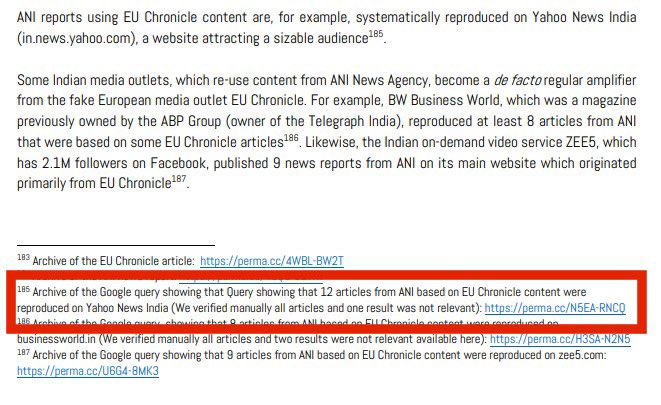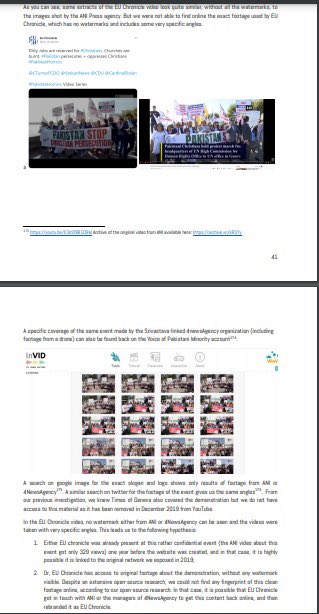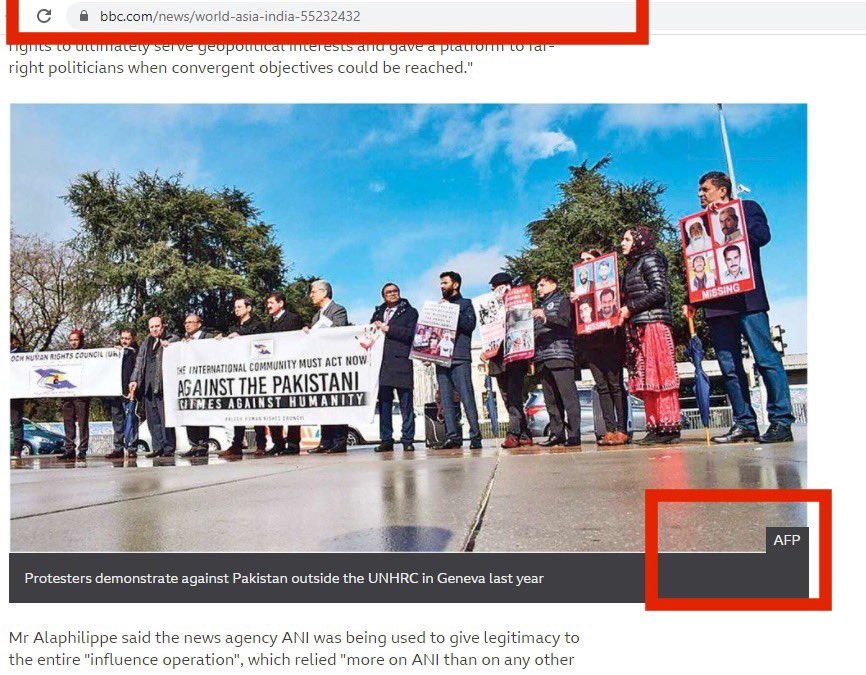My students @maxzks and Tushar Jois spent most of the summer going through every piece of public documentation, forensics report, and legal document we could find to figure out how police were “breaking phone encryption”. 1/
ACLU is suing the FBI over its efforts to break into encrypted devices. https://t.co/TN8X0Slmnf
— Zack Whittaker (@zackwhittaker) December 22, 2020
Authorities don’t need to break phone encryption in most cases, because modern phone encryption sort of sucks. 3/
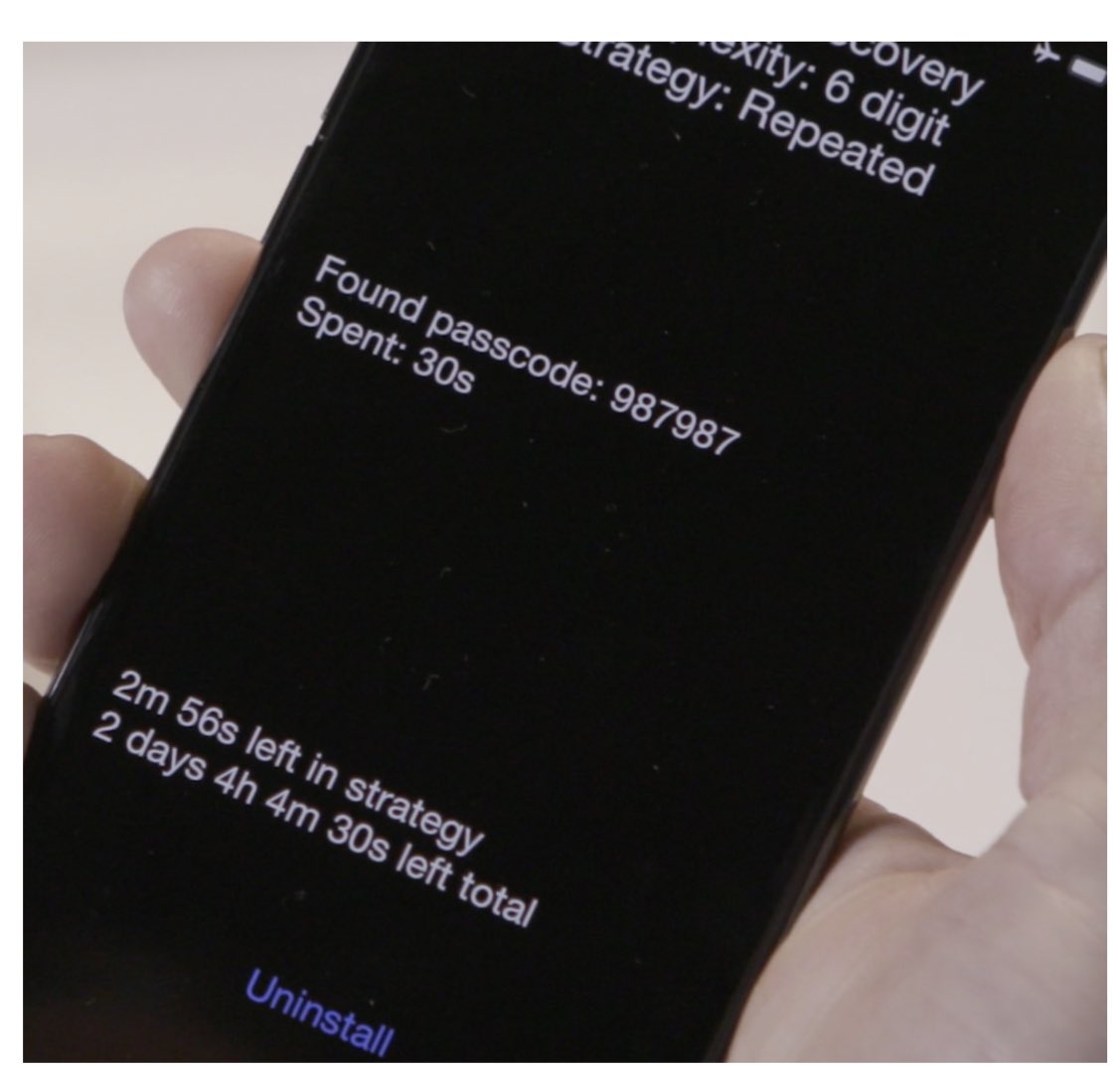
So if they can’t crack the passcode, how is law enforcement still breaking into iPhones (because they definitely are)? 6/
When you turn your phone on and enter the passcode in the morning, you switch your phone from BFU->AFU. 8/
All of the other keys stay in memory. 10/
(This is all well-known so far BTW.) 11/
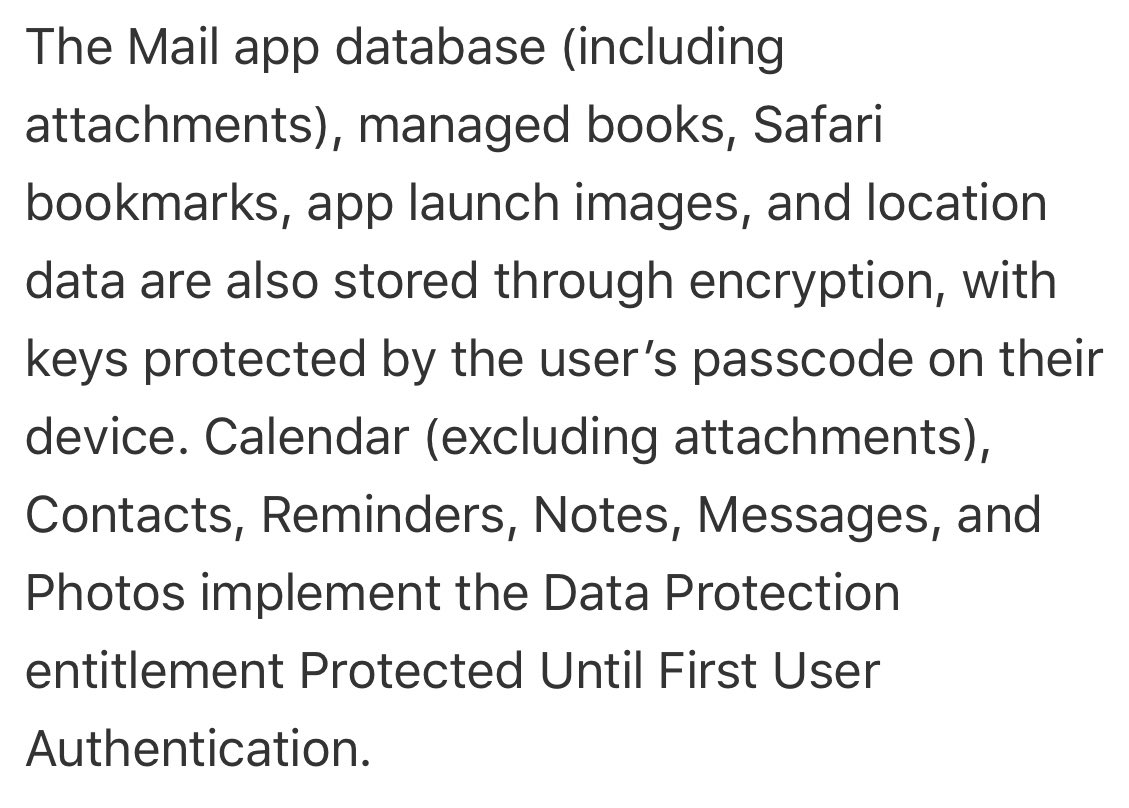
So it seems that Apple is actually protecting *less* data now than in 2012. Yikes. 16/

Mail (which probably already exists on a server that police can subpoena, so who cares.)
App launch data (🤷♂️)
That’s not great. 18/
Photos
Texts
Notes
Possibly some location data
Most of what cops want. 19/
Why is so little of this data encrypted when your phone is AFU and locked? And the answer to that is probably obvious to anyone who develops software, but it still sucks. 22/
When you protect files using the strongest protection class and the phone locks, the app can’t do this stuff. It gets an error. 23/
But for the most part it’s annoying for software devs, so they lower protections. And if Apple *isn’t* using strong protection for its in-house apps, who will? 24/
Maybe Apple’s lawyers prefer it this way, but it’s courting disaster. 25/
This will be on a pretty website soon. Thanks for not blocking me after this thread. // fin
More from Crime
ICYMI
Hate Crime Indictment
Jason DeSimas
Jason Stanley
Randy Smith
Daniel Delbert Dorson
-aiding & abetting
-punched & kicked a Black man -derogatory comments about his actual & perceived race
-assaulting 2 other men who intervened to protect the
What’s a bit amazing is this hate crime took place in December of 2018 and the 4 defendants were indicted nearly two year on the nose. Because the Defendants were indicted for a hate crime.
That’s a force multiplier or at a minimum an enhancement of 10 years (addition to)
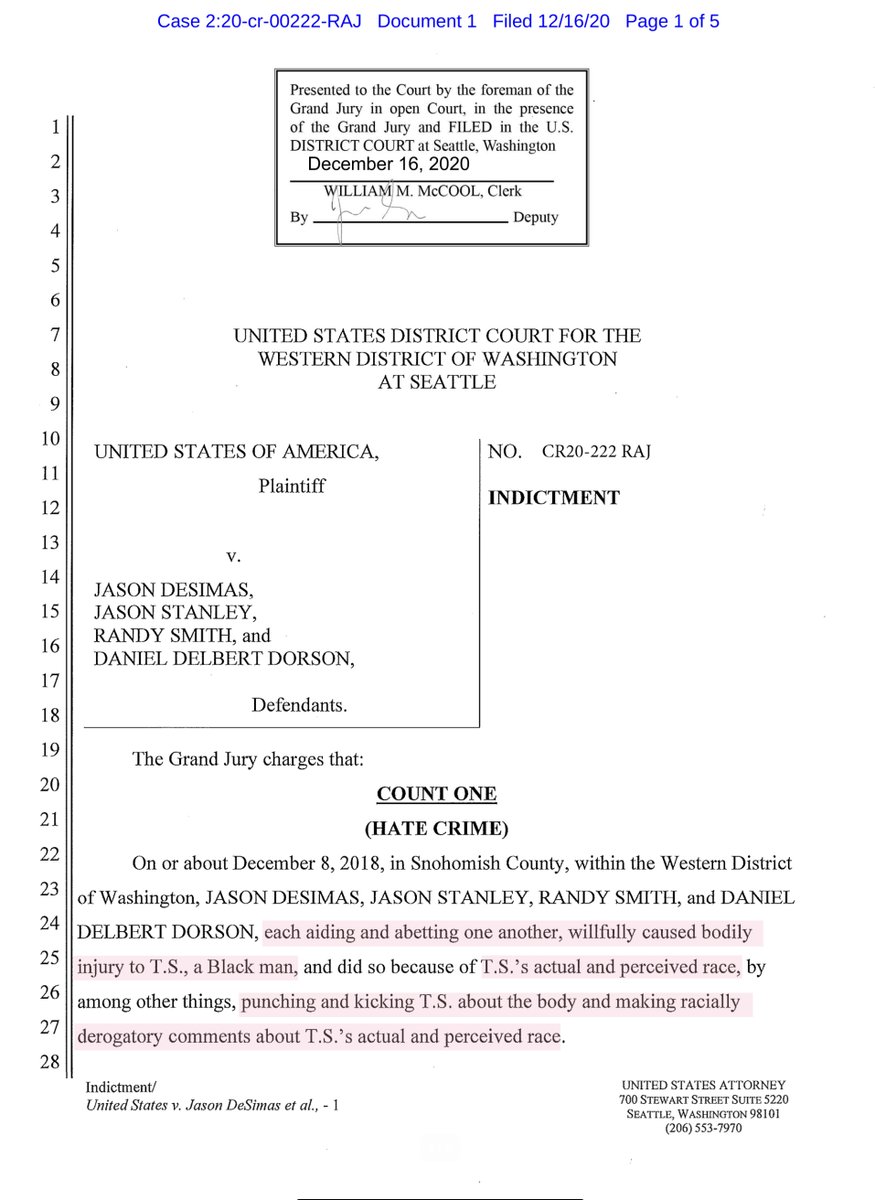
At first glance you wouldn’t think this had anything to do with White Supremacy -read page 4-
Dorson falsely claimed that he had not planned to attend a white supremacist’s “Martyr’s Day” observance in the state of WA
he had not owned a “flight jacket“
https://t.co/yU8t1DkyZA
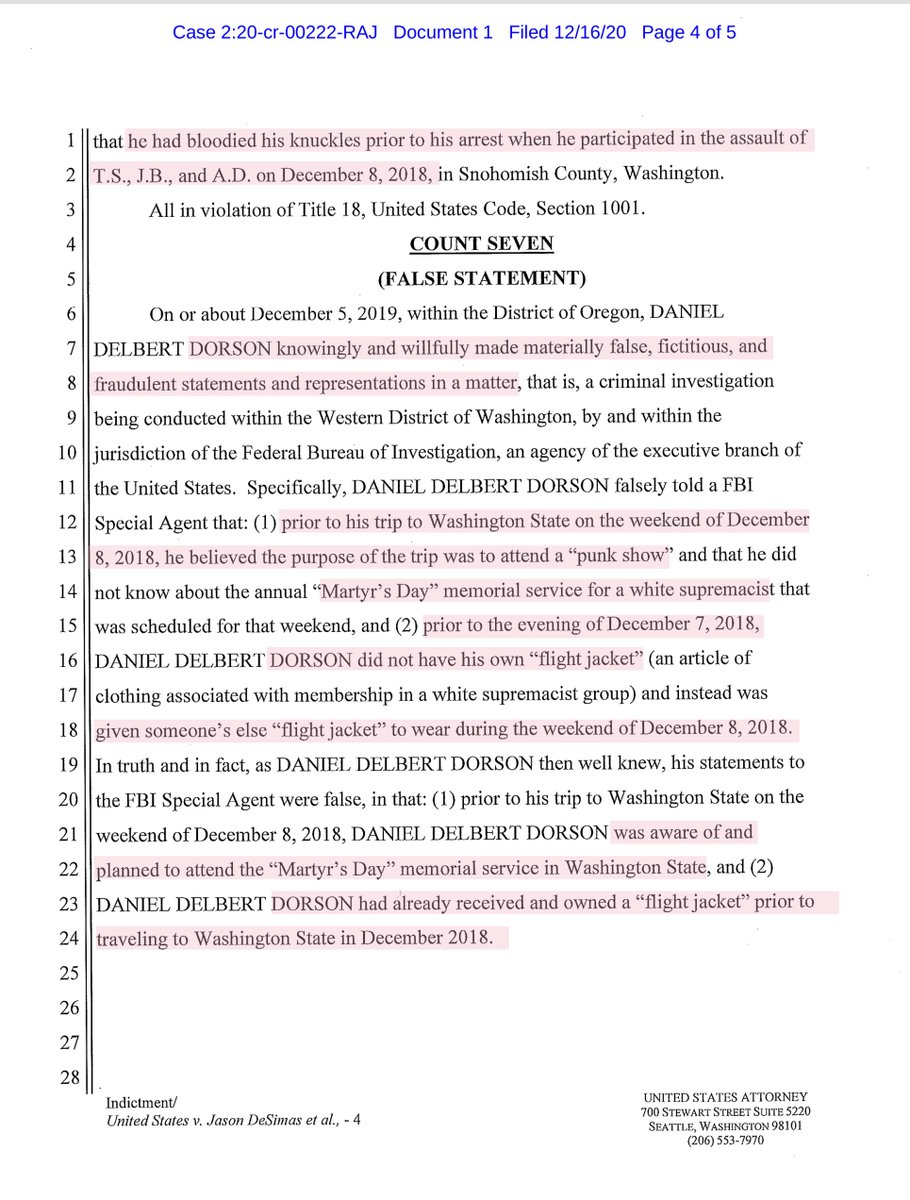
Doc # 16 Detention Motion by USA
https://t.co/sxaBEqDLWr
“DeSimas admitted that he was a member of Crew 38,
a support club of Hammerskin Nation, a white supremacists organization...DeSimas lied to the FBI, denying that neither he nor anyone else had used the “N” word...”
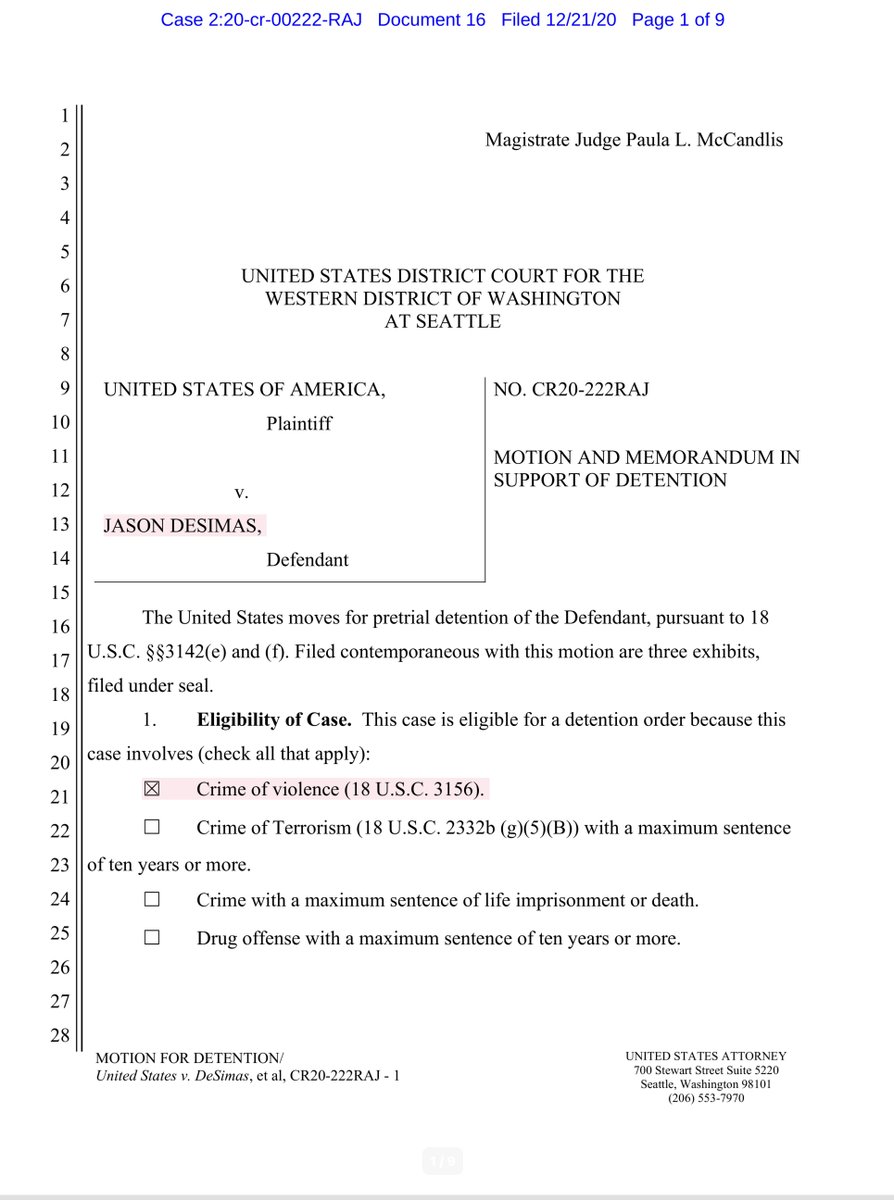
always read those footnotes
3 other co-defendants are in custody
-Daniel Delbert Dorson ordered detained & will be
transferred to this District
-Randy Smith is detained in the District of OR, on an unrelated federal case
-Jason Stanley is detained at the ID DOC an unrelated case
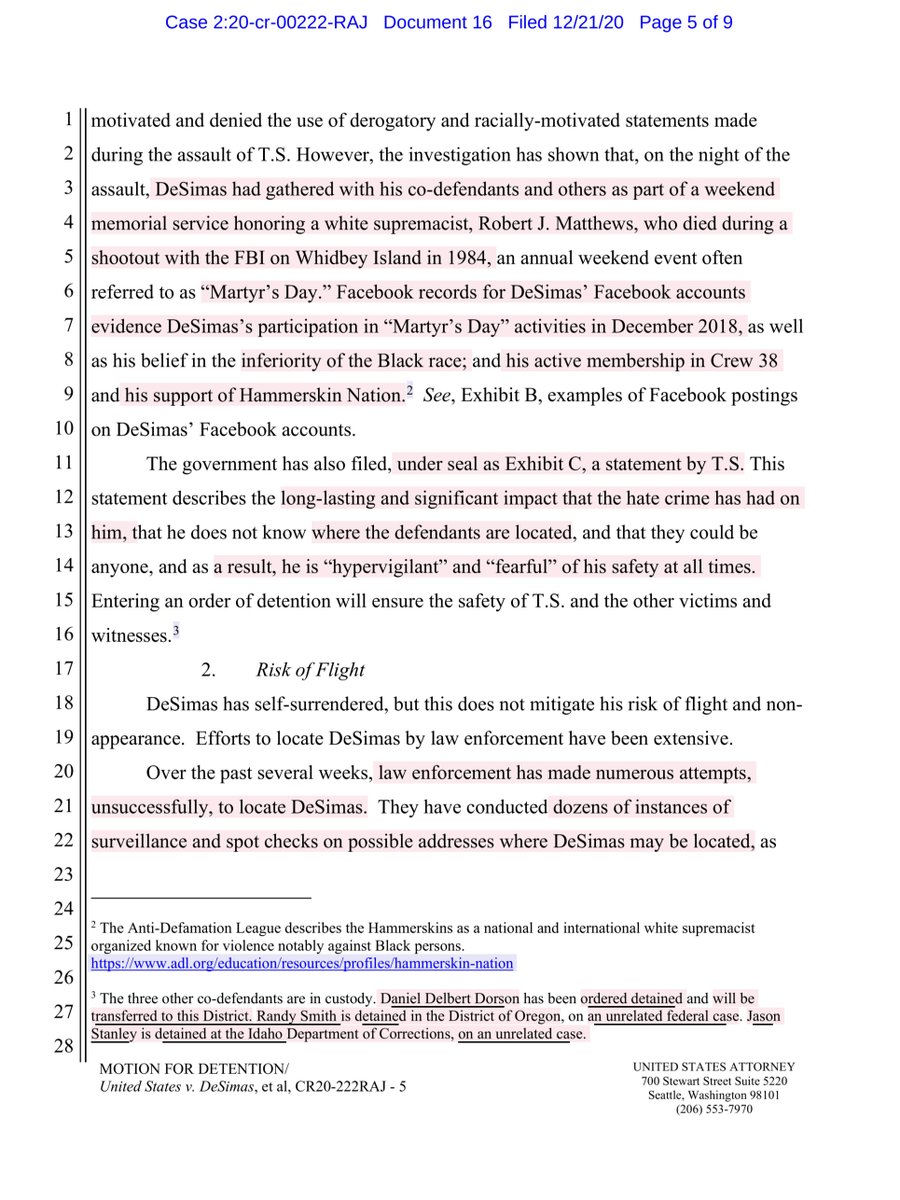
Hate Crime Indictment
Jason DeSimas
Jason Stanley
Randy Smith
Daniel Delbert Dorson
-aiding & abetting
-punched & kicked a Black man -derogatory comments about his actual & perceived race
-assaulting 2 other men who intervened to protect the
What’s a bit amazing is this hate crime took place in December of 2018 and the 4 defendants were indicted nearly two year on the nose. Because the Defendants were indicted for a hate crime.
That’s a force multiplier or at a minimum an enhancement of 10 years (addition to)

At first glance you wouldn’t think this had anything to do with White Supremacy -read page 4-
Dorson falsely claimed that he had not planned to attend a white supremacist’s “Martyr’s Day” observance in the state of WA
he had not owned a “flight jacket“
https://t.co/yU8t1DkyZA

Doc # 16 Detention Motion by USA
https://t.co/sxaBEqDLWr
“DeSimas admitted that he was a member of Crew 38,
a support club of Hammerskin Nation, a white supremacists organization...DeSimas lied to the FBI, denying that neither he nor anyone else had used the “N” word...”

always read those footnotes
3 other co-defendants are in custody
-Daniel Delbert Dorson ordered detained & will be
transferred to this District
-Randy Smith is detained in the District of OR, on an unrelated federal case
-Jason Stanley is detained at the ID DOC an unrelated case

You May Also Like
There are many strategies in market 📉and it's possible to get monthly 4% return consistently if you master 💪in one strategy .
One of those strategies which I like is Iron Fly✈️
Few important points on Iron fly stategy
This is fixed loss🔴 defined stategy ,so you are aware of your losses . You know your risk ⚠️and breakeven points to exit the positions.
Risk is defined , so at psychological🧠 level you are at peace🙋♀️
How to implement
1. Should be done on Tuesday or Wednesday for next week expiry after 1-2 pm
2. Take view of the market ,looking at daily chart
3. Then do weekly iron fly.
4. No need to hold this till expiry day .
5.Exit it one day before expiry or when you see more than 2% within the week.
5. High vix is preferred for iron fly
6. Can be executed with less capital of 3-5 lakhs .
https://t.co/MYDgWkjYo8 have R:2R so over all it should be good.
8. If you are able to get 6% return monthly ,it means close to 100% return on your capital per annum.
One of those strategies which I like is Iron Fly✈️
Few important points on Iron fly stategy
This is fixed loss🔴 defined stategy ,so you are aware of your losses . You know your risk ⚠️and breakeven points to exit the positions.
Risk is defined , so at psychological🧠 level you are at peace🙋♀️
How to implement
1. Should be done on Tuesday or Wednesday for next week expiry after 1-2 pm
2. Take view of the market ,looking at daily chart
3. Then do weekly iron fly.
4. No need to hold this till expiry day .
5.Exit it one day before expiry or when you see more than 2% within the week.
5. High vix is preferred for iron fly
6. Can be executed with less capital of 3-5 lakhs .
https://t.co/MYDgWkjYo8 have R:2R so over all it should be good.
8. If you are able to get 6% return monthly ,it means close to 100% return on your capital per annum.



